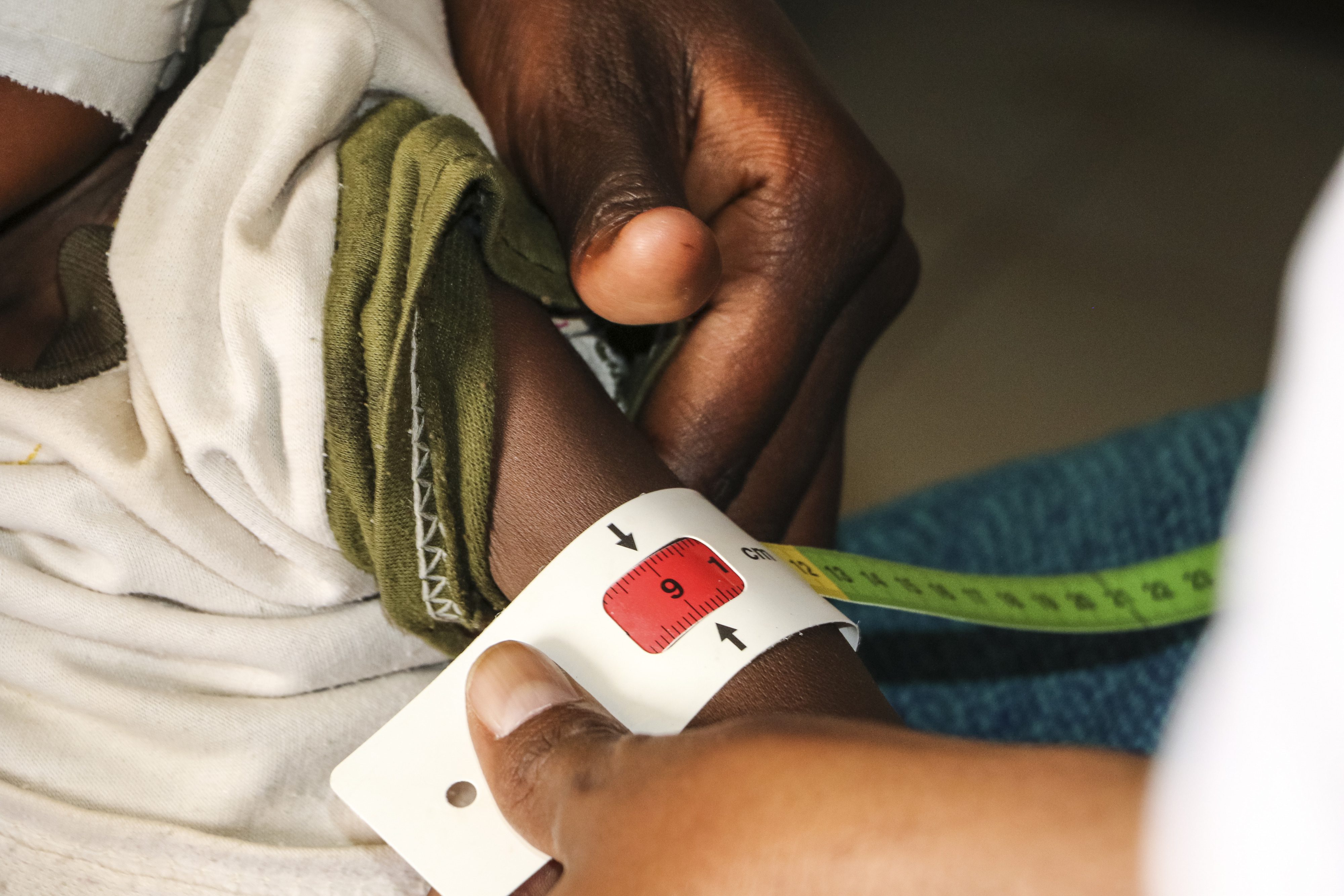Goal 1 We improve medical care of mothers, new-borns and children.
Strengthen health system in local communities
Ayan (18 Months) and Rahma
Rahma brought her 18 month old daughter *Ayan to the stabilisation centre, suffering from severe acute malnutrition.
Our approaches to reduce mother and child mortality
Maternal and new-born health
The first 28 days are the most critical time for a new-born – 2.7 million new-borns die each year during this period. Most neonatal deaths can be prevented by providing targeted education and support for mothers during pregnancy and postpartum. Poor infant and young child feeding practices, including lack of exclusive breastfeeding, are major contributors to high and persistent malnutrition levels.
Nutrition for young children
As one in seven Somali children dies before reaching their fifth birthday, we call for and support the nutrition of toddlers to ensure their survival and to enable their healthy physical and cognitive development. Acute malnutrition, micronutrient deficiency, as well as poor access to potable water and poor personal hygiene practices are major underlying causes of under-five mortality.
Involving the community in projects
When we involve entire communities in health programs, children can be treated at home, even in remote areas; this can often be a life-saving factor.
Flexible and adaptive project work
To improve the quality of health services provided, health facilities will be supported through improved physical infrastructure and capacity of the workforce. The health service provision will include a community outreach by mobile medical teams, and the networks of Community Health Workers, benefitting remote and hard-to-reach locations.
Sustainability is at the core of this project, both at Ministry of Health and community level. This project will prioritise a decentralized system for the delivery of health care services which empowers district level health authorities, as well as communities, while maintaining the support, supervision and accountability role of the regional and national authorities.
Community ownership and accountability has re-emerged as a top priority for health systems all over the world. One approach to reach this is through direct involvement of users or the general public in health service delivery and quality which prevent the building of a social distance and culture gap between service providers and the communities they serve.
Community ownership and accountability has re-emerged as a top priority for health systems all over the world.
Fatima (9 months) was referred to the stabilisation centre with malnutrition where she got special nutritious food.
Support our work

